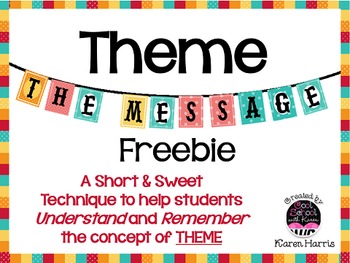"Theme is the prescription for living that the writer wants to give the audience or reader."
(Michael Hauge)
Theme is the central idea of your story. C. S. Lankin calls it "the heart of the story" (http://www.cslakin.com/). The theme is connected to the protagonist's internal journey. It allows the reader to relate to the characters and their struggles. "Theme is the prescription for living that the writer wants to give the audience or reader," says Michael Hauge (http://www.storymastery.com/).
Picture books should have one theme while chapter books or novels can have more than one theme. The main character in The Polar Express questions the existence of Santa Claus; he takes a journey to the North Pole and finds out that if he can hear the bell, he truly believes. He need only have faith is the theme of the story. The protagonist in the novel Catcher in the Rye doesn't want to grow up; preservation of innocence is the theme. Harry Potter feels unwanted wherever he goes; he wants to find a place to call home. Joan McCord offers other examples of theme:
- old ways are best
- determination wins the day
- the more you give, the more you get
- faith will see you through
- father knows best
- crime doesn't pay
- as the twig is bent, so grows the tree
- man is the master of his fate
- honesty is the best policy
"Plot, character, setting, point of view and symbolism support and create theme," says Joan McCord (http://authorlink.com/skill-building/what-is-theme-and-why-is-it-important/). As you draft your story outline, as you string your sentences together, as you complete your chapters, keep theme uppermost in your mind. Remember that the theme is usually inferred, rather than stated directly. Ms. McCord points out that your title, chapter titles, beginning, and particularly, your ending should all lead back to your dominant theme. Write one sentence to sum up your theme. Keep it in mind as you write the book. It will also come in handy when you pitch your story to potential publishers.

No comments:
Post a Comment